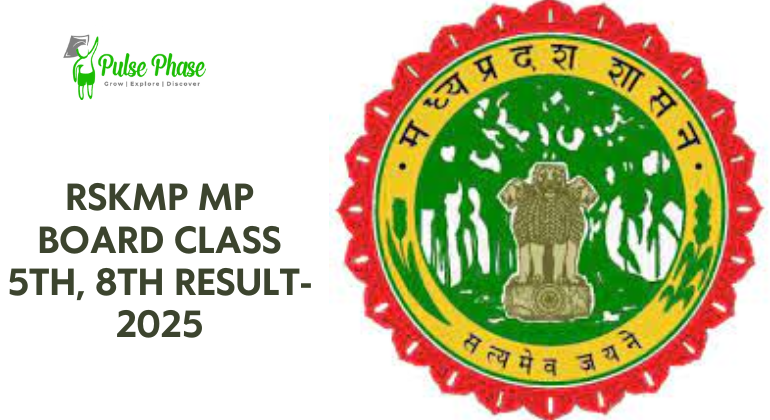The Chartered Accountancy (CA) Final Examination represents the pinnacle of the CA journey, serving as the ultimate assessment for aspiring Chartered Accountants in India. Administered by the Institute of Chartered Accountants of India (ICAI), this examination evaluates a candidate’s comprehensive understanding and proficiency in advanced accounting, auditing, taxation, and related fields. Successfully passing the CA Final Exam is a testament to an individual’s expertise and dedication, paving the way for a distinguished career in finance and accounting.
Recent Developments: Thrice-Yearly Examination Schedule
In a significant move to align with global best practices and provide candidates with increased flexibility, the ICAI announced that, starting in 2025, the CA Final Exams will be conducted three times a year—in January, May, and September. This change mirrors the earlier decision to hold the Intermediate and Foundation course exams thrice annually, ensuring uniformity across all levels of the CA program. The initiative aims to offer students more opportunities to appear for the exams, thereby enhancing their chances of success.
Eligibility Criteria
To be eligible for the CA Final Exams, candidates must fulfill the following requirements:
- Completion of CA Intermediate: Successful clearance of both groups of the CA Intermediate examination is mandatory.
- Articleship Training: Candidates must have completed a minimum of 2.5 years of the 3-year mandatory articleship training before the examination attempt.
- ICAI Registration: Enrollment in the CA Final Course with ICAI is required, along with adherence to all prescribed formalities.
Examination Structure
The CA Final Exam is divided into two groups, each comprising four papers. Candidates have the option to appear for both groups simultaneously or one at a time, based on their preparation and strategy.
Group I
- Financial Reporting (FR): Focuses on advanced accounting standards, financial statements, and corporate reporting.
- Strategic Financial Management (SFM): Covers financial analysis, valuation, risk management, and strategic decision-making.
- Advanced Auditing and Professional Ethics: Deals with auditing standards, procedures, and ethical considerations in professional practice.
- Corporate and Economic Laws: Encompasses company law, securities regulations, and economic legislation affecting businesses.
Group II
- Strategic Cost Management and Performance Evaluation: Addresses cost control, performance metrics, and strategic management accounting.
- Elective Paper (Choose one from the following options):
- Risk Management
- Financial Services and Capital Markets
- International Taxation
- Economic Laws
- Global Financial Reporting Standards
- Multi-Disciplinary Case Study
- Direct Tax Laws and International Taxation: Focuses on income tax provisions, international taxation principles, and related case laws.
- Indirect Tax Laws: Covers Goods and Services Tax (GST), customs laws, and other indirect tax regulations.
Passing Criteria
To successfully clear the CA Final Exam, candidates must achieve:
- Minimum 40% marks in each paper.
- Aggregate of 50% marks across all papers in a group.
Additionally, if a candidate scores 60% or more in any paper, they are granted an exemption in that paper for the subsequent three examination attempts.
Registration and Examination Fees
- Registration Fee: The fee for enrolling in the CA Final Course is INR 22,000 for both groups.
- Examination Fee: The fee for appearing in both groups is INR 3,300.
Note: Fees are subject to periodic revisions by ICAI; candidates should verify the current rates from the official ICAI website.
Study Resources
ICAI provides a wealth of study materials to aid candidates in their preparation, including:
- Official Study Modules: Comprehensive textbooks covering the entire syllabus.
- Practice Manuals: Collections of past examination questions and practice exercises.
- Revision Test Papers (RTPs): Released prior to each examination session, these papers help candidates assess their readiness.
- Mock Tests: Simulated exams that replicate the actual testing environment.
Additionally, candidates may opt for reference books authored by renowned experts and enroll in coaching programs offered by various educational institutions to supplement their studies.
Preparation Strategies
Success in the CA Final Exam requires a well-structured and disciplined approach:
- Time Management: Develop a detailed study plan allocating sufficient time to each subject, ensuring comprehensive coverage of the syllabus.
- Conceptual Understanding: Focus on grasping underlying principles and concepts rather than rote memorization.
- Regular Revision: Schedule multiple revision cycles to reinforce learning and improve retention.
- Practice: Solve previous years’ question papers and participate in mock tests to enhance problem-solving skills and time efficiency.
- Stay Updated: Keep abreast of amendments in laws, standards, and regulations, as these are frequently tested in the exams.
Admit Card and Examination Centers
- Admit Cards: ICAI releases admit cards approximately three weeks before the examination date. Candidates must download them from the official ICAI website.
- Examination Centers: Exams are conducted across various cities in India and select international locations, including Dubai and Kathmandu. Candidates can choose their preferred center during the application process.
Results and Pass Rates
- Declaration of Results: ICAI typically announces results within two months following the examination.
- Pass Percentage: Historically, the pass rate for the CA Final Exam ranges between 5% to 10%, underscoring its rigorous nature.
Career Prospects Post-Qualification
Achieving the CA designation opens up a myriad of career opportunities. Successful candidates can:
- Establish their own CA practice and provide professional accounting, auditing, and tax consultancy services.
- Join prestigious firms, including the Big 4 accounting firms (Deloitte, PwC, EY, KPMG), as auditors, consultants, or financial analysts.
- Work in multinational corporations (MNCs) in roles such as Chief Financial Officer (CFO), financial controller, or taxation specialist.
- Enter the banking and financial services sector, specializing in investment banking, risk management, and forensic accounting.
- Pursue further professional qualifications such as CFA, CPA, or an MBA in Finance to expand their expertise and global career prospects.
Conclusion
The CA Final Exam is undoubtedly one of the toughest professional examinations, but with the right strategy, dedication, and persistence, success is within reach. The introduction of a thrice-yearly exam schedule in 2025 provides increased flexibility for candidates to plan their attempts effectively. Aspiring Chartered Accountants should stay committed to their preparation, leverage ICAI resources, and maintain a disciplined study routine to maximize their chances of success.
For the latest updates, always refer to the official ICAI website: www.icai.org.




